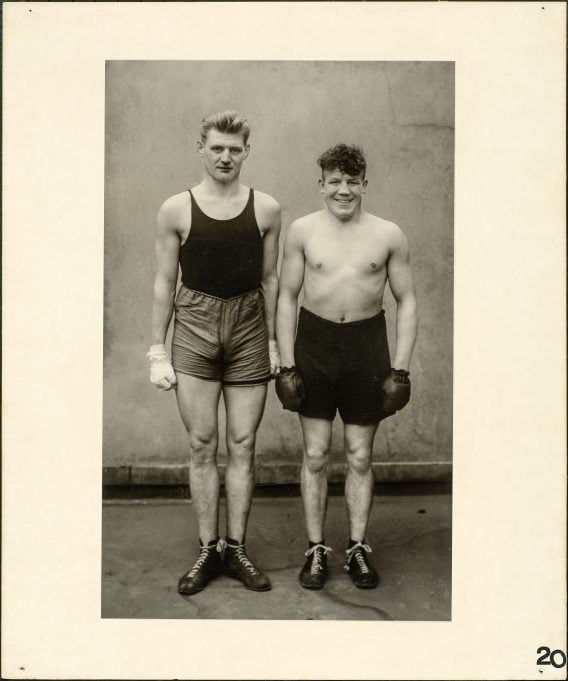
Having recently relocated to Berlin’s leafy upscale neighborhood of Charlottenburg, Galerie Berinson reopened in late January with an exhibition of works by the influential German photographer August Sander.
Over the course of his six-decade career, the artist set himself the ambitious goal of creating a comprehensive photographic sociological study of 20th century life in Germany by documenting images and portraits of individuals, urban life, and landscapes.
Currently on view at Galerie Berinson is a selection of 70 unique images from the artist’s seminal series “People of the 20th Century,” which were created towards the end of Sander’s life, with the help of his son Gunther.
Conceived by the artist himself, the works in the exhibition were selected by Sander between 1961 and 1963 to convey his conceptual aim of presenting snapshots reflecting all levels and aspects of German society through portrait photography. It is the first time in over 50 years that the series is on display in its entirety.
August Sander Confirmand, 1911 (1911). Courtesy of Galerie Berinson, Berlin.
A year after the project was finalized, the artist died (his estate is now represented by Hauser & Wirth); this body of work can be viewed as the pieces by which he wished to be remembered.
August Sander The painter (Anton Räderscheidt) (1926). Courtesy of Galerie Berinson, Berlin.
Sander’s work not only anticipated conceptual art, but also legitimized photography as an independent artistic medium, and influenced generations of photographers such as Diane Arbus, Tina Barney, Rineke Dijkstra, and Bernd and Hilla Becher.
“Sander must be considered Germany’s greatest portraitist of the 20th century,” gallerist Hendrik Berinson told artnet News in an email. “He single-handedly elevated the confined trade of portraiture into a sphere where it would become a true visual language describing and explaining German and human history reflected through his subjects.”